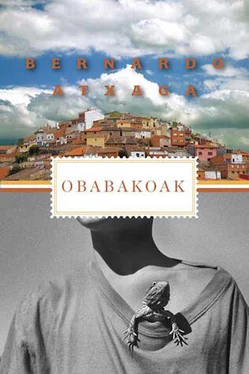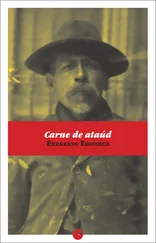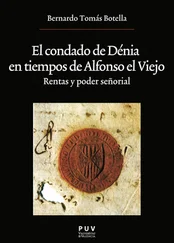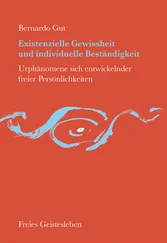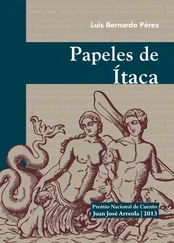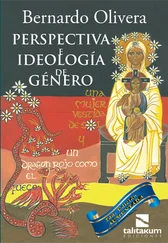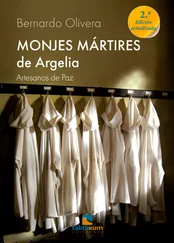Bernardo Atxaga - Obabakoak
Здесь есть возможность читать онлайн «Bernardo Atxaga - Obabakoak» весь текст электронной книги совершенно бесплатно (целиком полную версию без сокращений). В некоторых случаях можно слушать аудио, скачать через торрент в формате fb2 и присутствует краткое содержание. Год выпуска: 2010, Издательство: Graywolf Press, Жанр: Современная проза, на английском языке. Описание произведения, (предисловие) а так же отзывы посетителей доступны на портале библиотеки ЛибКат.
- Название:Obabakoak
- Автор:
- Издательство:Graywolf Press
- Жанр:
- Год:2010
- ISBN:нет данных
- Рейтинг книги:3 / 5. Голосов: 1
-
Избранное:Добавить в избранное
- Отзывы:
-
Ваша оценка:
- 60
- 1
- 2
- 3
- 4
- 5
Obabakoak: краткое содержание, описание и аннотация
Предлагаем к чтению аннотацию, описание, краткое содержание или предисловие (зависит от того, что написал сам автор книги «Obabakoak»). Если вы не нашли необходимую информацию о книге — напишите в комментариях, мы постараемся отыскать её.
Obabakoak
The Observer
Obabakoak — читать онлайн бесплатно полную книгу (весь текст) целиком
Ниже представлен текст книги, разбитый по страницам. Система сохранения места последней прочитанной страницы, позволяет с удобством читать онлайн бесплатно книгу «Obabakoak», без необходимости каждый раз заново искать на чём Вы остановились. Поставьте закладку, и сможете в любой момент перейти на страницу, на которой закончили чтение.
Интервал:
Закладка:
This time it was my turn to sigh.
“I’m going to ask you one last question, Master, for there are many people traveling on the ship and I do not wish to tire you. Tell me, who are the ones in the stern? The ones at the other end of the boat, crying and lamenting.”
“Being, as I am, a shadow, I know nothing of fatigue. You, on the other hand, do. I see that you cannot bear much more and that your strength is failing and so, once I have told you about those last travelers, I will say no more. The people you see there are the ‘sad ones.’ Like petty lovers, they offer the island only their griefs, with which they merely make the situation worse. Like Icarus’s father, they whisper in the ear of the person who is falling: you’re on the road to ruin; they cast despairing looks at the person for whom things are going well and who is on the way up, letting him know that do what he may, it will all be in vain. Were the island to end up in their hands, Gethsemane would be a joyous place by comparison.
We both stayed there for a while, not saying anything, looking out at the black ship. Then he took me by the hand and led me down the hill, to one of the few green spots remaining on the island. The ground was covered by tall grasses and scattered all around were fig trees heavy with fruit.
“Master, don’t go yet,” I begged, seeing that he let go of my hand.
“What do you want from me? Some solution?” he said, reading my thoughts. I nodded.
“I told you before: If as many books had been written in euskera as in…”
“But there are so few writers, Master! And anyway none are of your stature.”
The Master plucked a fig from the tree and offered it to me. He remained thoughtful while I ate it.
“And what about plagiarists? Aren’t there any of them?” he asked.
“I’m not sure I know what you mean, Master,” I said.
“What I’m asking is, is there no one who, out of great respect for some particularly fine writer, adopts his style of writing? In my time that was how nearly all books came into being.”
It seemed to me that before going on I had to clear up a few points.
“I don’t think so, sir,” I began. “Moreover, things have changed a lot since your day. Ever since the eighteenth century, people have taken a very dim view of plagiarism. It’s considered as bad as stealing. Nowadays, the work of a writer has to give the impression of being created out of nothing. In other words, the work has to be original.” He looked at me hard as if struggling to understand. Then, producing a dish from somewhere, he began to pick figs.
After a while, as he went from tree to tree, he said: “That’s no good at all. In my view, plagiarism has many advantages over the labor of creation. It is much easier to carry out and less hard work. You can finish twenty works of plagiarism in the time it takes to produce one creative work. And because the qualities of the original serve as a guide and an aid, you often get very fine results, which is not always the case with creative texts. The idea that it is theft is most unfortunate, since it deprives us of the best tool we have to give life to the island.”
Although apparently annoyed, he took great care placing the figs on the dish. I, meanwhile, remained silent. I did not want to distract him from the subject occupying his thoughts.
“A rector shouldn’t really say such things but… what if the robbery were committed with some skill?” he asked, coming over to me again. A furtive smile flickered across his face.
“Commit plagiarisms without revealing them for what they are? Is that what you mean, Master?” I said, startled.
“Exactly.”
“But to do that you would need a method, and besides…”
He placed a hand on my shoulder.
“My son, answer me honestly!” he said. “Do you love this island?”
“Very much, Master,” I replied rather warily.
“And would you be prepared to run risks and put yourself in danger for it?”
Given the way he looked at me, it was impossible for me to say no.
“Then go out into the world and devise that method. Let the new generations learn to carry out with confidence new works of plagiarism! Let the island bring forth new books!”
Saying that, he placed in my hands the dish full of figs. Then he stepped into a cloud that had descended to our level and disappeared from view. I opened my eyes and woke up.
Although I could see the familiar sight of the mountains of Obaba through my window, it took me time to realize that I was in my bedroom. Everything there, pictures, clothes, books, seemed strange to me, because their reality was not potent enough to dispel the dream. Even with my eyes open, I was still standing with the author of Gero, now on the top of that hill looking down on the island, now on the plain among the fig trees. Once I was fully awake I remembered:
“I promised him I would come up with a method for plagiarists!”
I found it very hard returning to the world with that promise and I longed to go back to sleep. However, unease had taken hold of my heart and gradually my head began to clear. I felt I would be incapable of devising such a method and that, even if I were, no one would listen. Besides I had not given my word to just anyone, but to Axular himself, the Angelic Doctor of Euskal Herria. And that thought made me so nervous that, when I took a bite of fig, it went down the wrong way.
Then I thought: “A plagiarist must select texts with a clear plot. That will be the first rule of my method.”
Feeling surprised, but nonetheless pleased with the idea that had arisen so unexpectedly, I picked up a notebook from the bedside table and wrote it down, adding:
In other words, one must choose stories or novels whose plots can be summed up in a few facts or events. For that reason, models such as Robbe Grillet or Faulkner are unsuitable for the plagiarist, because in the works of writers such as these, the story is the least important thing. Writers like Saki, Buzzati, or even Hemingway, on the other hand, can be highly recommended. In general terms, the more ancient the model chosen, the better for the plagiarist: You could use a thousand stories from those collected in The Arabian Nights but not one from some avant-garde anthology.
I studied what I had written. It wasn’t bad and it occurred to me that perhaps it would not be as difficult to come up with a method as I had supposed.
And to celebrate my bold discovery, I raised another fig to my lips and ate it very carefully.
“In order to plagiarize one must discard all rare books,” I thought then, feeling even more surprised than when I had had the first idea. Without knowing why, I was more inspired that morning than ever before. But, of course, however surprised I was, I could not let such an opportunity slip. So I picked up the notebook again and set to writing a commentary on the second rule:
The plagiarist should never consider using a rare book that has not been translated into his own language, for example, the novel his parents bought for him in a book shop in Red Square on their trip to Moscow, not even if his friend the polyglot prepares an attractive synopsis of its plot. Because, after all, what does he know about the latest in Russian literature? And what if his parents, in all innocence, have happened upon someone about to become a dissident? Then what would happen? After a couple of years, that someone will be proclaimed by the mass media and then even university students will know by heart the plots of every novel he ever wrote. And, of course, if that happened, the plagiarized work would be placed in grave danger.
No, the plagiarist should not employ sly stratagems to achieve his ends. He should not direct his feet to far-flung neighborhoods or dark alleyways as if he were some shabby thief, rather he must stroll in the broad light of day through the open spaces of the very center of the metropolis. He must head for Boulevard Balzac or Hardy Gardens or Hoffmannstrasse or Piazza Pirandello… in other words, he must choose his models from among writers who are household names. And don’t worry. No one will ever know. Because, as with archangels, all anyone ever knows about the classics are their names and their faces.
Читать дальшеИнтервал:
Закладка:
Похожие книги на «Obabakoak»
Представляем Вашему вниманию похожие книги на «Obabakoak» списком для выбора. Мы отобрали схожую по названию и смыслу литературу в надежде предоставить читателям больше вариантов отыскать новые, интересные, ещё непрочитанные произведения.
Обсуждение, отзывы о книге «Obabakoak» и просто собственные мнения читателей. Оставьте ваши комментарии, напишите, что Вы думаете о произведении, его смысле или главных героях. Укажите что конкретно понравилось, а что нет, и почему Вы так считаете.
